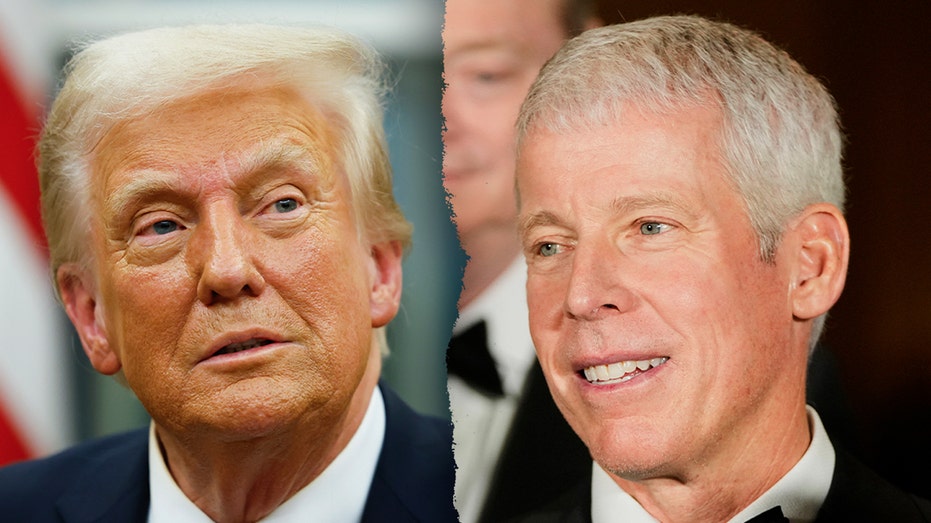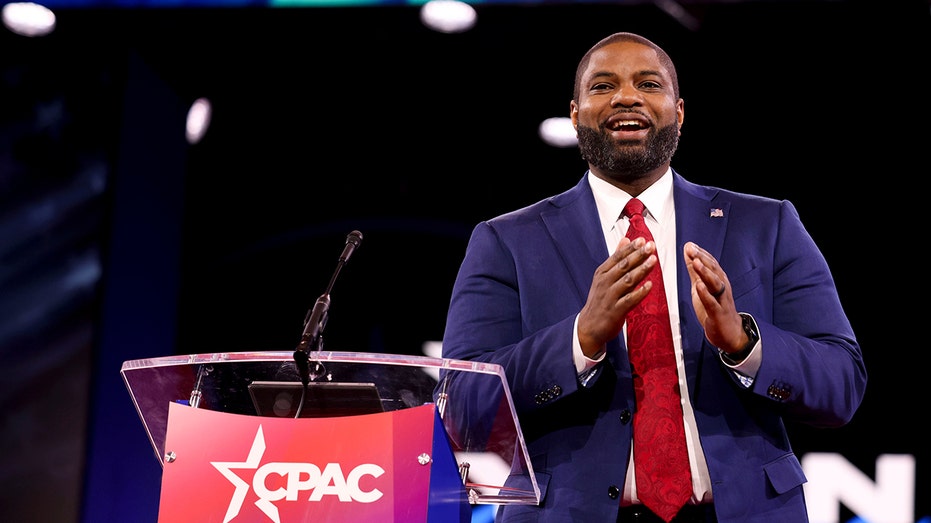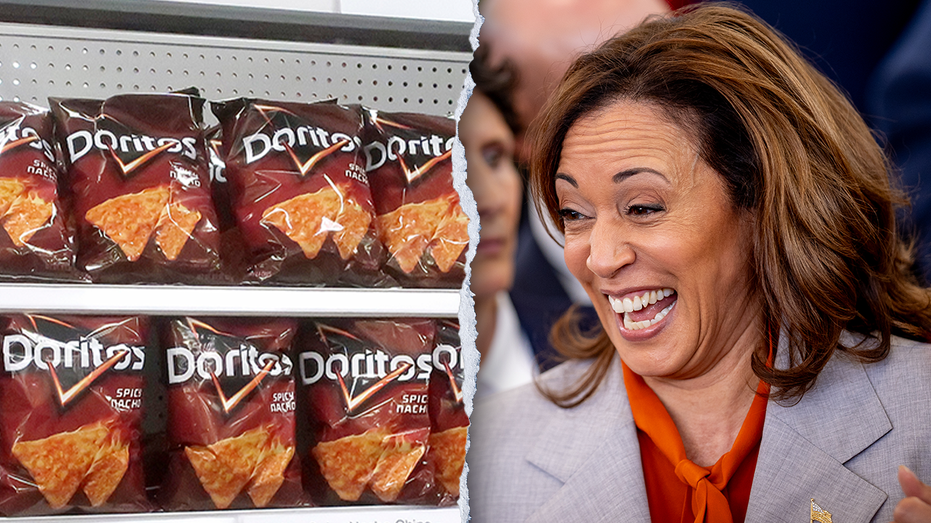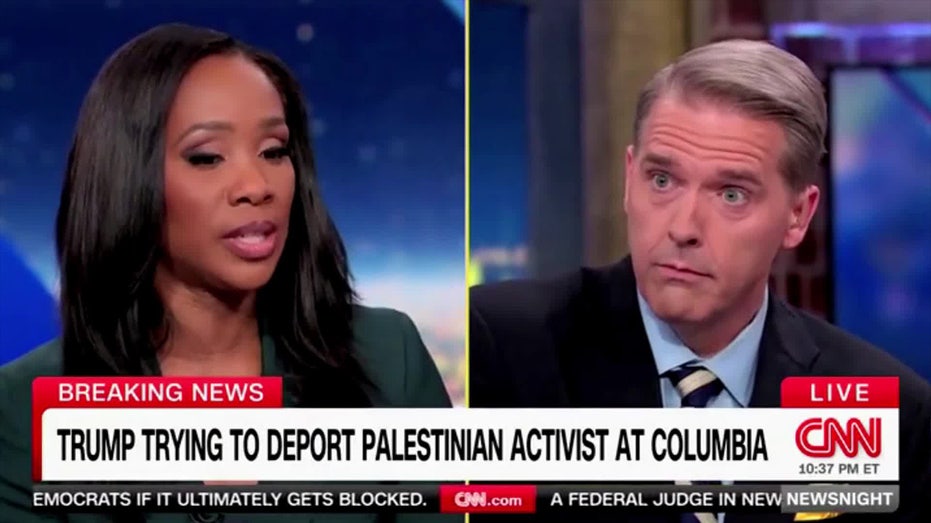- by foxnews
- 12 Mar 2025
The strangest insult in US politics: why do Republicans call it ‘the Democrat party’?
The strangest insult in US politics: why do Republicans call it ‘the Democrat party’?
- by theguardian
- 08 Sep 2024
- in politics

The Democratic party? Robert F Kennedy Jr's never heard of it.
On Tuesday, the former presidential candidate issued his latest condemnation of the "Democrat party", endorsing a bizarre linguistic tradition among haters of the institution. As Donald Trump told a rally in 2018: "I call it the Democrat party. It sounds better rhetorically." By "better", of course, he meant "worse", as he explained the next year: he prefers to say "the 'Democrat party' because it doesn't sound good".
In removing two letters from "Democratic", the former president is adopting a jibe that's been around since at least the 1940s. Opponents of the party long ago decided, for some reason, that this brutal act of syllabic denial would shame their opponents. Democrats don't seem particularly devastated by the attack, but Republicans and those who love them have stuck with it. We hear it regularly from party luminaries such as JD Vance, Mike Johnson and Nikki Haley; pragmatic independents like RFK Jr; and media voices across the vast spectrum from Fox News to Infowars. Last week, even Tulsi Gabbard, once a Democratic presidential candidate herself, wrote an op-ed proudly describing her departure from the Democrat party and support for Trump.
But even if the misnaming doesn't exactly leave liberal snowflakes in tears, it does serve a purpose, says Nicole Holliday, acting associate professor of linguistics at the University of California, Berkeley. It's a marker of affiliation - an indicator of the media a person consumes and the politicians they listen to. She recently heard a friend remark on "Democrat party" policies and asked why they used the term; the friend wasn't even aware they had done it. "Language is contagious, especially emotionally charged political language," Holliday says. "Most of the time, we don't have the cognitive bandwidth to think very hard about every single word that we're using. We just use it because it's what other people do."
That lack of awareness "shows how normalized it's become", says Larry Glickman, Stephen and Evalyn Milman professor in American studies at Cornell University, who likens the term to a "schoolyard taunt". It suggests the party is "outside the mainstream of American politics so much so that we're not even going to call them by the name they prefer. We refuse to give them that amount of respect."
It's part of a familiar pattern, as Holliday has written: "Intentionally calling a set of people by something other than their official and preferred form of reference is a common tactic of opposition that is designed to confer disrespect." If someone named Christopher prefers not to be called Chris, and you do it anyway, it's pretty clear you're being rude - regardless of your politics, she says. And she and Glickman both point out that we're seeing a new version of the same unpleasant phenomenon when it comes to the pronunciation of Kamala Harris's first name. Almost half the speakers at the Republican convention got it wrong, according to the Washington Post. At a July rally, Trump said he "couldn't care less" if he mispronounced the word. Eventually, Harris's grandnieces, ages six and eight, felt compelled to offer a lesson at the Democratic convention this month.
Such bullying may be a Trump trademark, but its origins are a bit fuzzy. According to Glickman, the term first came to prominence in 1946 thanks to a congressman named Brazilla Carroll Reece, who headed the Republican National Committee. Unlike Trump, Reece saw himself as a liberal - at least according to that era's definition of the term; still, he wasn't a fan of the New Deal or other recent developments. He used the term to indicate that what was once the Democratic party no longer existed: it had been commandeered by "radicals". In 1948, the Republican party platform left off the "ic" in "Democratic", and in 1952, a newspaper columnist asked: "Who has taken the 'ic' out of the party of our fathers?" Senator Joseph McCarthy, meanwhile, helped popularize the term.
Over the decades, the Democratic party became associated with liberal policies, and eventually, "the 'Democrat party' slur became a condemnation of liberalism itself", Glickman wrote. The phrase was a huge hit in the 90s and 2000s; Newt Gingrich, Rush Limbaugh and George W Bush played it on repeat. By the following decade, Trump was mandating the word: "The Democrat party. Not Democratic. It's Democrat. We have to do that."
Removing the "ic" does seem to suggest the party isn't about democracy. But if that's the goal, Glickman wonders: "Why not call it the undemocratic party? Like Trump used to say the Department of Injustice." And anyway, as they've proved since 2020, democracy isn't high on the list of Republican values. Instead, Glickman suggests, it's more about a "babyish" tendency to misname people. Also, as Hendrik Hertzberg wrote in the New Yorker in 2006, "it fairly screams 'rat'."
So what should Democrats do? Is it time to start calling Republicans Republics? Licans? Relics? President Harry Truman tried "Publicans", and it clearly didn't take off. Perhaps it's best, especially considering that many people don't even know it's an insult, to just keep ignoring it. Getting mad would be taking the bait. "This would be constructed as Democrats are weak pedants who can't take a joke and they're policing our language and see how they're so heavy-handed with regulation?" Holliday says.
So Democrats can let the attempts at bullying continue. Trump and his gang clearly need to blow off some steam; might as well be through the world's tiniest, oddest insult.
- by foxnews
- descember 09, 2016
Daring airport trend has travelers arriving at gate 15 minutes before takeoff
Flight passengers are participating in the new viral trend, "airport theory," with flyers arriving at their gates 15 minutes before their flights depart. A travel expert weighs in.
read more





